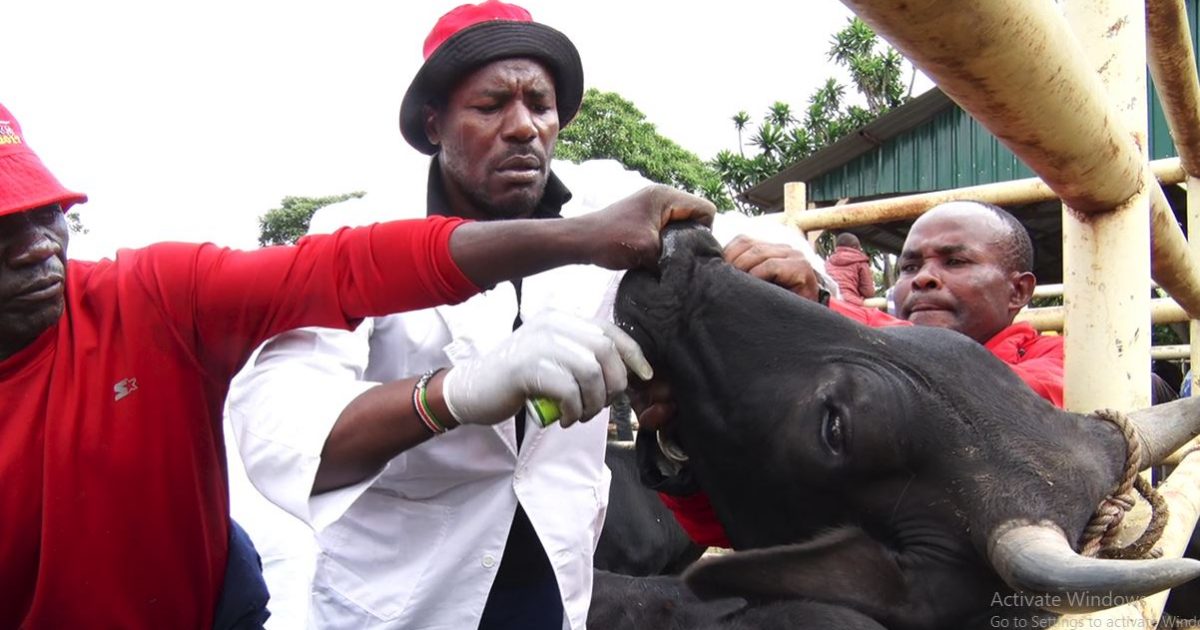The Kenya Veterinary Association marked the 26th World Veterinary Day in Kakamega by vaccinating 2499 livestock after a week-long 57th scientific Veterinary Association annual conference that was meant to sharpen the skills of veterinarians.
The livestock were vaccinated against foot and mouth disease, lumpy skin disease, and other common diseases during a daylong exercise at Lubao Market.
Veterinary surgeons who were part of the team performed free surgeries to 1014 cats and dogs in efforts to control their population through the government’s campaign on responsible dog ownership programme through sterilization method. The dogs were similarly vaccinated against rabies.
According to the Deputy Director of Veterinary Services at the Department of Veterinary Services, Charles Ochodo, dogs are very prolific, producing at least 5–10 puppies at any given time, which can be burdensome to the owners, who in the past ended up using inhumane practices such as poison, crude weapons, and abandonment to get rid of them.
Ochodo said Kenya has a strategy to eradicate rabies by 2027, and part of the practices is the spaying of male dogs and neutering of female dogs. “Spaying is the surgical removal of reproductive organs, that is, the uterus, of female dogs, while neutering is the surgical removal of reproductive organs of male dogs through castration,” he explained.
In the prevailing high cost of living coupled with drought, Ochodo challenged livestock keepers to rear a sizable number of livestock of higher quality where they can comfortably enhance good animal husbandry in terms of feeding, housing, and disease control in order to reap maximum benefit.
“We also advocate for effective disease control, which includes deworming of animals and providing the necessary biosecurity around the home to manage diseases, because that contributes to animal welfare that leads to better production,” he said.
With this year’s theme being promoting equity, inclusiveness, and equality in the veterinary profession, Ochodo asked dog owners to always present their dogs for vaccination at the nearest veterinarian.
The Honorary Secretary of the Kenya Veterinary Association, Dr. Purity Kiunga, said the association collaborated with the Kenya Veterinary Board, the Government of Kenya, Nor brook, CKL Africa Limited to contribute to the livelihoods of the people by taking care of the animal welfare.
“The message we are passing across is that the veterinary profession is strong as we contribute to the community by vaccinating animals against diseases to enhance food security, which is one of the Agendas of the government,” she noted.
The University of Nairobi’s Professor of Veterinary Surgery, who is also the dean of the faculty of veterinary medicine, John Demesi Mande, said Kenya has approximately 3000 veterinary surgeons, with 84 expected to graduate in September this year.
He called for collaboration on one health approach to manage diseases across humans, animals, and the environment for better living.
By Moses Wekesa




